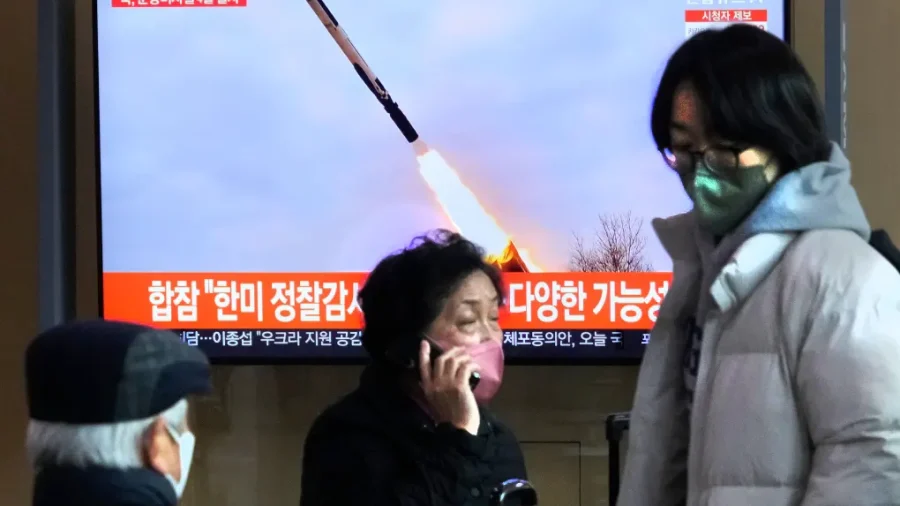North Korea test-fired four strategic cruise missiles during a drill designed to demonstrate its ability to conduct a nuclear counterattack against hostile forces, its state media said on Friday.
The exercise on Thursday involved an apparently operational strategic cruise missile unit of the Korean People’s Army, which fired the four “Hwasal-2” missiles in the area of Kim Chaek City, North Hamgyong Province, towards the sea off the east coast of the Korean Peninsula, state news agency KCNA said. Other units conducted firepower training at hardened sites without live firing, it added. The four strategic cruise missiles hit a preset target after travelling the “2,000km-long (1,243 mile) elliptical and eight-shaped flight orbits for 10,208 seconds to 10,224 seconds,” the report said.
The drill demonstrated “the war posture of the DPRK nuclear combat force bolstering up in every way its deadly nuclear counterattack capability against the hostile forces,” KCNA said, using the initials of North Korea’s official name, the Democratic People’s Republic of Korea.
The missile launches were not announced by South Korea or Japan, which are often the first to detect and publicly report such launches.
South Korea’s defence ministry said the launch was monitored but there were “differences” between what it and the United States detected and the North’s statement, without elaborating.
The launch came as U.S. and South Korean officials took part in a tabletop, or simulated, exercise that focused on the possibility of North Korea using a nuclear weapon. In a separate dispatch, Pyongyang’s foreign ministry criticised Washington and its allies for calling a meeting of the UN Security Council over its spate of recent missile tests.
North Korea has accused the United Nations has been “unfair” on its military activities while keeping mum about U.S. and South Korean joint military exercises. Kwon Jong Gun, the ministry’s director general for U.S. affairs, reiterated North Korea would consider “strong countermeasures” if the United Nations continues to serve as a “U.S. tool to pressure” Pyongyang. “If the Security Council becomes a venue that judges justice for injustice and legal for illegal, under the influence of the United States and its followers, it would only cause negative results that further exacerbate military tension,” Kwon said in a statement carried by KCNA.
North Korea has forged ahead in developing and mass producing new missiles, despite sanctions imposed by United Nations Security Council resolutions that ban the nuclear-armed country’s missile activities. Many launches, including an intercontinental ballistic missile (ICBM) on Saturday, have been reported by state media as drills designed to improve the capabilities of the troops operating the weapons.—INP










